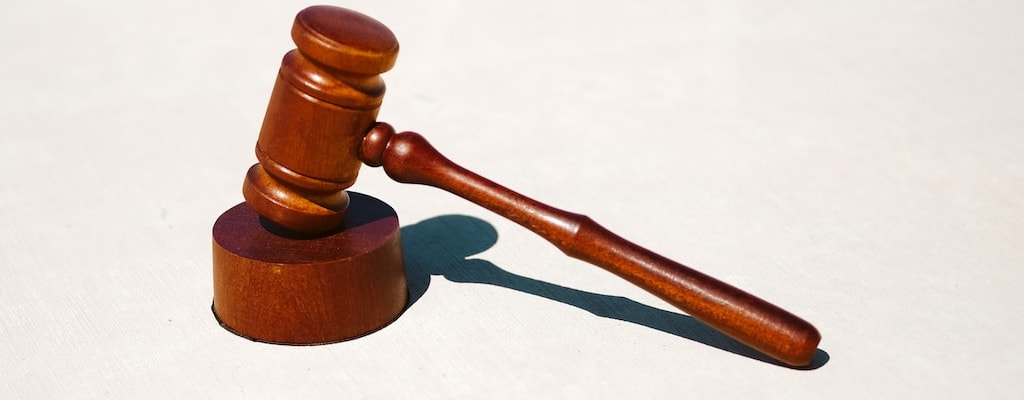rough justice: Idiom Meaning and Origin
What does ‘rough justice’ mean?
The idiom "rough justice" means to administer justice in a harsh or unfair manner, without proper consideration of the facts or the law.

Idiom Explorer
The idiom "serve someone right" means that someone is receiving the punishment or consequences that they deserve for their actions or behavior.
The idiom "salt in the wound" means to worsen an already difficult or painful situation, often by adding insult to injury.
"Run riot" is an idiom that means to behave in a wild or uncontrolled manner, often causing chaos or disorder.
Run riot is a common idiom in English that dates back to the 18th century. It refers to the uncontrolled growth or behavior of plants, animals, or people. When something or someone is said to "run riot," it means they are out of control and causing a disruption.
The idiom "roughen up" means to make something or someone rough or more aggressive, usually by adding force or intensity. It can also refer to making something appear more rugged or worn.
The idiom "rough around the edges" means that someone or something may appear imperfect or unrefined, but still has potential or qualities that make them interesting or valuable.
The idiom "rough and ready" means something or someone that is not refined or polished, but is practical and effective in a basic way.
The idiom "rip off" means to take or steal something from someone in a dishonest or unfair way, often by charging a much higher price for something than it is worth.
The idiom "ride someone hard and put them away wet" means to use someone relentlessly and then discard them without consideration for their well-being or feelings.
The idiom "ride roughshod over" means to act without caring about or considering the opinions, needs, or feelings of others, and to treat them in a harsh or unfair manner.
The idiom "ride roughshod over" is a commonly used expression in English. It conveys the idea of disregarding or ignoring the feelings, rights, or opinions of others and imposing one's own will or authority without any consideration for their well-being or concerns.
The idiom "reap what one sows" means that a person will face the consequences of their actions, whether positive or negative.
Unmasking Rough Justice
The idiom "rough justice" is widely used in the English language, and its origins can be traced back to the early 19th century. It is a figurative expression that refers to a form of justice that is severe, harsh, or unfair. The idiom implies that the punishment or outcome is not in line with what would be considered fair or just under normal circumstances.
The term "rough" in "rough justice" conveys the idea of something being unrefined, unpolished, or lacking in gentleness. It suggests that the justice being delivered is rough in nature, characterized by a lack of consideration for individual circumstances or a disregard for established legal processes. It is important to note that "rough justice" does not imply a complete absence of justice, but rather a form of justice that may be perceived as harsh or unforgiving.
The use of the word "rough" as an adjective to describe justice has been recorded in various contexts over the years. One early example can be found in the book "Memoirs of the Life of Sir Samuel Romilly" (1840), where the author writes: "The notion of rough, bloody, ferocious justice... has been propagated, widely diffused, and deeply rooted in the minds of all classes, and operates most powerfully in preventing all reform."
Throughout history, there have been numerous examples where the concept of "rough justice" can be observed. In cases where legal systems were not well-established or were influenced by factors such as corruption, bias, or mob rule, the outcome of judicial proceedings may have been regarded as "rough justice." These instances often highlight the shortcomings of the legal system and the importance of fair and balanced processes.
In modern usage, the idiom "rough justice" continues to be employed to describe situations where punishment or retribution is perceived as excessive or disproportionate. It is often used to criticize or draw attention to instances where individuals believe that the punishment does not fit the crime.
The idiomatic expression "rough justice" serves as a reminder of the complexities and challenges inherent in any system of justice. While legal systems strive to uphold fairness and equality, the idiom highlights the potential for error, bias, or abuse within these systems. Additionally, it prompts us to reflect on the ethical implications of administering punishment and the necessity of ensuring justice is not synonymous with cruelty.
The concept of "rough justice" can be related to the idiom "just deserts." This idiom refers to the idea that individuals will ultimately receive what they deserve, whether it be reward or punishment, based on their actions or behavior. In the context of "rough justice," this idiom suggests that the punishment delivered may be seen as excessive or unfair, and not commensurate with the individual's actions. It emphasizes the subjective nature of justice and the potential for it to be misapplied or distorted.
Similarly, the idiom "raw deal" can be connected to the concept of "rough justice." The phrase "raw deal" describes a situation where someone is treated unfairly, often in a way that is unfavorable to their interests or well-being. In the context of "rough justice," this idiom highlights the perception that the individual subject to the justice system has been given an unfair or unfavorable outcome. It underscores the potential for injustice and the need for a fair and balanced legal system.
The idiom "rough justice" captures the idea of a form of justice that is severe, harsh, or perceived as unfair. While legal systems strive to uphold fairness and equality, the idiom reminds us of the potential flaws and limitations within these systems. The related idioms "just deserts" and "raw deal" further emphasize the subjective nature of justice and the importance of ensuring that punishments and outcomes are proportionate and fair. Through these idioms, we are prompted to reflect on the complexities of justice and the need for ongoing efforts to achieve a system that is both effective and equitable.
Example usage
Examples of how the idiom "rough justice" can be used in a sentence:
- He was being accused of a crime he didn't commit, and the mob decided to take matters into their own hands and mete out rough justice.
- The vigilante group believed that the legal system was failing to punish criminals adequately, so they resorted to giving rough justice to those they deemed guilty.
- Despite the lack of evidence, the judge sentenced the defendant to a harsh punishment, indicating a case of rough justice.
More "Justice" idioms

